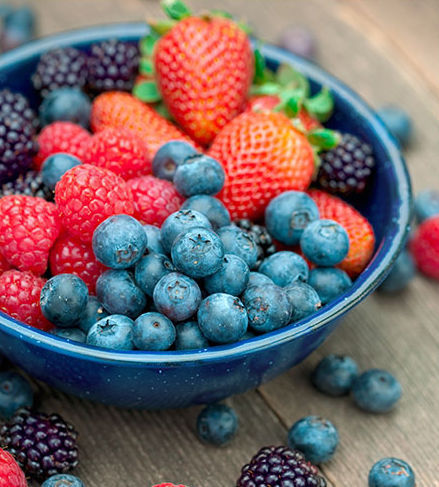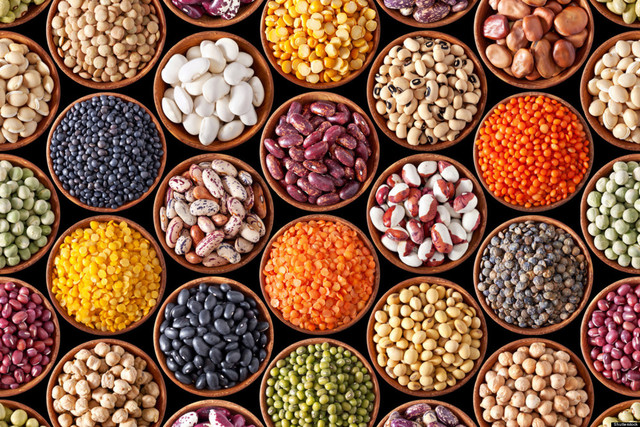What are antioxidants?
Antioxidants are compounds which inhibit oxidation in the body or in foods. Oxidation is a chemical process which involves the transfer of electrons or hydrogen producing harmful free radicals in the body.
These destructive substances can cause cell damage or death in the body through altering DNA, which can in turn lead to development of diseases such as cancer, heart disease, Alzheimer’s and Parkinson’s diseases, due to cellular mutations.
External factors such as cigarette smoke, air pollution and excessive alcohol consumption can all lead to production of free radicals and are therefore harmful to the body. Antioxidants help to stop the damage done by free radicals and therefore may be effective in reducing risk of disease.
Oxidation is also the process that makes food go bad after a certain time and antioxidants are often used in food manufacturing to slow down this process, giving food a longer shelf life.
Why we need antioxidants
Although your body produces some antioxidants on its own, which work to battle the on-going small amounts of oxidative damage in the body, in the modern world, we are exposed to many free radical forming substances. It is therefore suggested that we include some antioxidants in our diet to combat this.
There is some evidence that a diet high in vitamin antioxidant containing foods may reduce the risk of developing lifestyle diseases, although there is some question as to whether other antioxidants which appear to be beneficial in laboratory conditions actually assert any effect in the human body.
The best sources of antioxidants are plant based foods and there is suggestion that a high intake of fruit and vegetables is associated with lower risk of many diseases, so whether or not the antioxidants are as powerful as they seem or whether another mechanism is in play, a wide variety of fruits and vegetables in your diet is a good way to ensure a healthy diet and reduce risk of disease.
Common antioxidants
Some common antioxidants include particular vitamins, flavonoids and polyphenols.
Vitamin C works to stop the oxidative chain reaction before it starts, whilst vitamin E breaks the chain further along. Flavonoids and polyphenols are also common antioxidants, with different forms found in a variety of plant based foods.
Only the vitamin antioxidants have been proven to have beneficial antioxidant effects in the human body, whilst the other forms have been shown to be effective in a laboratory, but are not thought to maintain this efficiency in the human body.
What foods are high in antioxidants?
Foods that are naturally high in antioxidants are mainly from the fruit, vegetable and legume families. Berries contain the highest amount of antioxidants for fruit, in particular blueberries, cranberries and blackberries, whilst artichokes are a good source from the vegetable family. Red beans and pinto beans are the highest in antioxidants of the legumes.
Antioxidant vitamin C are commonly found in fruits and vegetables, particularly citrus fruits, whilst beta-carotene, which is required to make the antioxidant vitamin A in the body is found in vegetables that are green and leafy or yellow and orange in color.
Fat soluble vitamin E is found in nuts, seeds, wheat germ and whole grains. Flavones, a type of polyphenol antioxidant are found in berries and tea, whilst carotenoids, which include the antioxidants lycopene and beta-carotene are found in a variety of vegetables.
Many spices and compounds such as cocoa have high antioxidant levels; however, our intake of these products is in such small portions that it is unlikely they have any effect in the human body.
Dried fruits are also a good source, as the removal of water concentrates the antioxidants.
A word of caution on supplements
Due to their potential to reduce oxidative damage, it was thought that high intakes of antioxidants through supplementation may reduce risk of disease and may even be beneficial for treatment.
However, further research has concluded that there is no benefit to very high intake of antioxidants in terms of disease prevention and there is even some suggestion that a very high intake may increase the risk of some cancers.
Do you eat enough antioxidants in your diet? Comment below and let me know any thoughts or questions you may have :)
Source
References used in this article




No comments:
Post a Comment